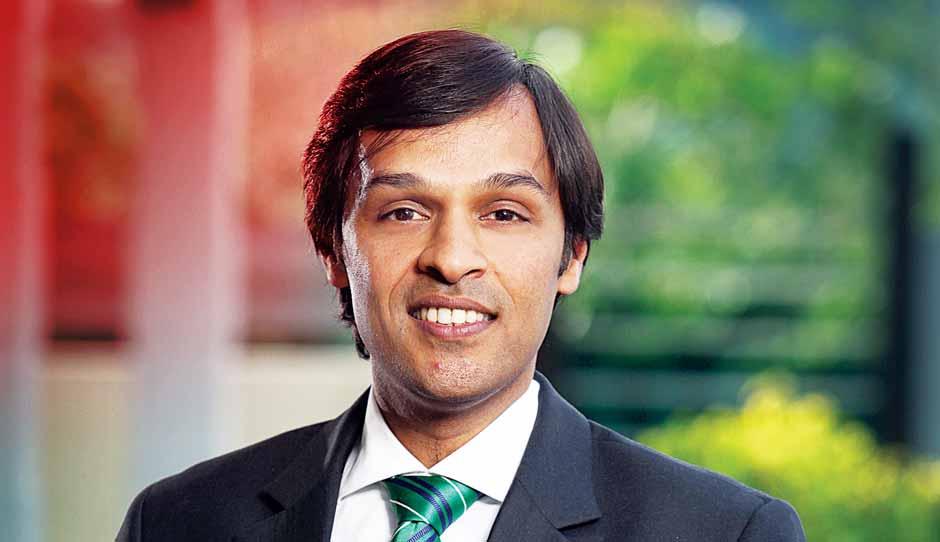Churning the Right Recipe for Success: Dipak Sanghavi
- BY Ira Swasti
 In People
In People 30611
30611 0
0

The way Nilon’s is run today is significantly different from the way my father operated it. I take more risks than my father did."- Dipak Sanghavi
I took over the family business when I was all of 24 years. My father had just passed away. It isn’t that I was forced into it. Even if I hadn’t been born into a business family, I would have done something of my own. It’s great to know that I provide so many people with employment. That means a lot to my family and me.
My father was a gutsy risk-taker in his early days. But, by his mid-40s, he gravitated towards spirituality. Nilon’s growth slowed down in those days. The company was put on auto-pilot mode, managed almost entirely by the senior management.
When I joined Nilon’s in 2002 after my father’s demise, I realised our senior managers were not ambitious enough. My father used to say—find people better than you to run the company. I set about to do that. It took me 18 months to find the right person. My professor from IIM Ahmedabad introduced me to Rajheev Agarwal. In 2004, he joined us as the company’s director and CEO. That year proved to be the turning point for Nilon’s. We were making Rs10 crore till then. Within a year, we had doubled that to Rs22 crore. Since then, Nilon’s has been growing at a CAGR of 55 per cent.
Of course, I’ve inherited my business acumen from my father. But a lot of the lessons also came from Rajheev. When you grow up in a family-run business, you only have one perspective. Many second-generation entrepreneurs these days work for four to five years in different companies to get different perspectives, before they plunge into their family business. I didn’t get that chance because I joined Nilon’s right after college. Working with Rajheev exposed me to different insights. We make a good team.
The most important ingredient for a successful business is to put the right people on top. Once you have that, the rest falls into place.
The way Nilon’s is run today is significantly different from the way my father operated it. I take more risks than my father did. We are much more aggressive and have been so since 2004. We are also more customer-focused. Earlier, we sold products we made. Now, we find out what our consumers want and develop products accordingly with strict quality control. Rajheev and I didn’t want Nilon’s to remain a pickle company. We wanted to be known as a processed food company. So we diversified our product portfolio to include instant mixes, ginger-garlic pastes and spices. Pickles are still our mainstay. But, they constitute only 45 per cent of our total business today, compared to the 90 per cent before 2004. Also, we retail from more than four lakh outlets, compared to just 35,000 in 2004. To ensure that the very best quality reaches our consumers we installed state-of-the-art microbial labs. We already had manufacturing plants in Maharashtra and Assam, now we are planning facilities in south and north India to serve more regionally suitable food products. Today our products travel to Japan, France, the US, South Africa, Dubai, Saudi Arabia, Malaysia, Singapore, Australia and Canada.
I’m happy with our recent journey. Honestly, I would have been happier if Nilon’s had been as aggressive about branding and distribution before I entered the scene. When you join a family business, comparisons between the father and son are bound to happen. In my case, these comparisons are not about business performance, but about whether I’ve retained my father’s values or not. I might have expanded the company, but people want to know whether I treat our employees the way my father did. He was a pious man.
I’ve strived to continue to treat our employees with the same dignity. If I ever come to know of people, who think otherwise, I introspect to see if I’m following in my father’s footsteps. If not, I make the conscious effort to better my performance.
The most important ingredient for a successful business is to put the right people on top. Once you have that, the rest of the things just fall into place.
MY TIP
Don’t enter the business with the thought that you own it. Learn from those around you. You can turn your ambitions into reality only if you take people along.
Company Profile | Nilon’s
Founded by Suresh Sanghavi in 1962, Nilon’s has come a long way since its cottage industry days. Today, it is the largest producer and marketer of pickles globally, and one of the fastest-growing processed food companies in India. Its pickles, vermicelli, ginger-garlic pastes, squashes, jams and ketchups, are also exported to countries like France, Japan and Australia. Over the next three years, Nilon’s is targeting to become a Rs500-crore company. Sanghavi’s son, Dipak, is churning this growth, and confesses he’s more ambitious than his father probably ever was.





























Add new comment